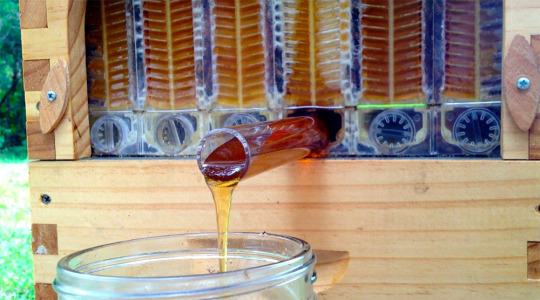I'm Kyle, a damn proud Canadian, and a damn proud country kid. I enjoy everything form nature to pretty women, from rocks on the ground to ones whizzing through the sky. Expect anything and everything that catches my interest on this blog. These are not my pictures unless other wise stated! Enjoy!
Don't wanna be here? Send us removal request.
Note
How old are you? And what kind of farm do you live on (if you live on a farm)?
21, and a mixed farm when I am not at post secondary school.
1 note
·
View note
Photo




WATCH: Honey on Tap: A New Beehive that Automatically Extracts Honey without Disturbing Bees [video]
215K notes
·
View notes
Audio
0 notes
Photo

Milky Way just outside of Calgary. Photo by @neil_zee | #explorealberta
160 notes
·
View notes
Photo










the flowers of holland’s keukenhof gardens near lisse in spring bloom. (a sort of “modern day tulip mania" — shout out to econ historians.) photos by (click pic) yves herman, peter femto, daily overview, guilhem de cooman, rdevo58, frans sellies, edwin jones, and allard schager
3K notes
·
View notes
Photo





We just received a huge shipment of carnivorous terrariums! Lots of different Sundews, Venus Flytraps, Pings, Pitcher plants and Cobra lily!
16K notes
·
View notes
Photo



Scientists Figure Out How To Count Whales … FROM SPACE!!!
by Jonathan Amos
Scientists have demonstrated a new method for counting whales from space. It uses very high-resolution satellite pictures and image-processing software to automatically detect the great mammals at or near the ocean surface.
A test count, reported in the journal Plos One, was conducted on southern right whales in the Golfo Nuevo on the coast of Argentina. The automated system found about 90% of creatures pinpointed in a manual search of the imagery.
This is a huge improvement on previous attempts at space-borne assessment, and could now revolutionise the way whale populations are estimated. Currently, such work is done through counts conducted from a shore position, from the deck of a ship or from a plane. But these are necessarily narrow in scope.
An automated satellite search could cover a much larger area of ocean and at a fraction of the cost…
(read more: BBC News)
74 notes
·
View notes
Photo








mammatus clouds, named for their resemblance to the mammary gland, form when air laden with big water droplets is carried to the top of a thunderstorm cloud whose altitude is cold enough to freeze the water droplets. the resulting crystals sink back down towards earth, collecting at the base of the cloud before they have time to evaporate. mammatus clouds are usually only stable for a few minutes.
photos by zack schnepf and mike hollingshead in the american midwest (click pic for specific location).
2K notes
·
View notes
Photo

follow me!: http://allthiscountry.tumblr.com/
900 notes
·
View notes
Photo

Johnston Canyon, Banff, Canada.
Source: Squibler (reddit)
12 notes
·
View notes
Photo





a broad and ample road, whose dust is gold and pavement stars, as stars to the appear, seen in the galaxy, that milky way, which nightly, as a circling zone, thou seest powdered with stars — john milton, paradise lost
photos by maurizio pignotti, who merges together anywhere from 80 to 450 sequential shots, taken around the adriatic sea on cold winter nights, to create these star trails.
2K notes
·
View notes
Photo

The road home was slightly wet
0 notes
Photo

How To: Plant Seeds Using Eggshells // 17 Apart
I think this is such a cute idea. Once they finally sprout you can transfer them into your pot or the ground and the eggshells will breakdown around it.
8K notes
·
View notes



